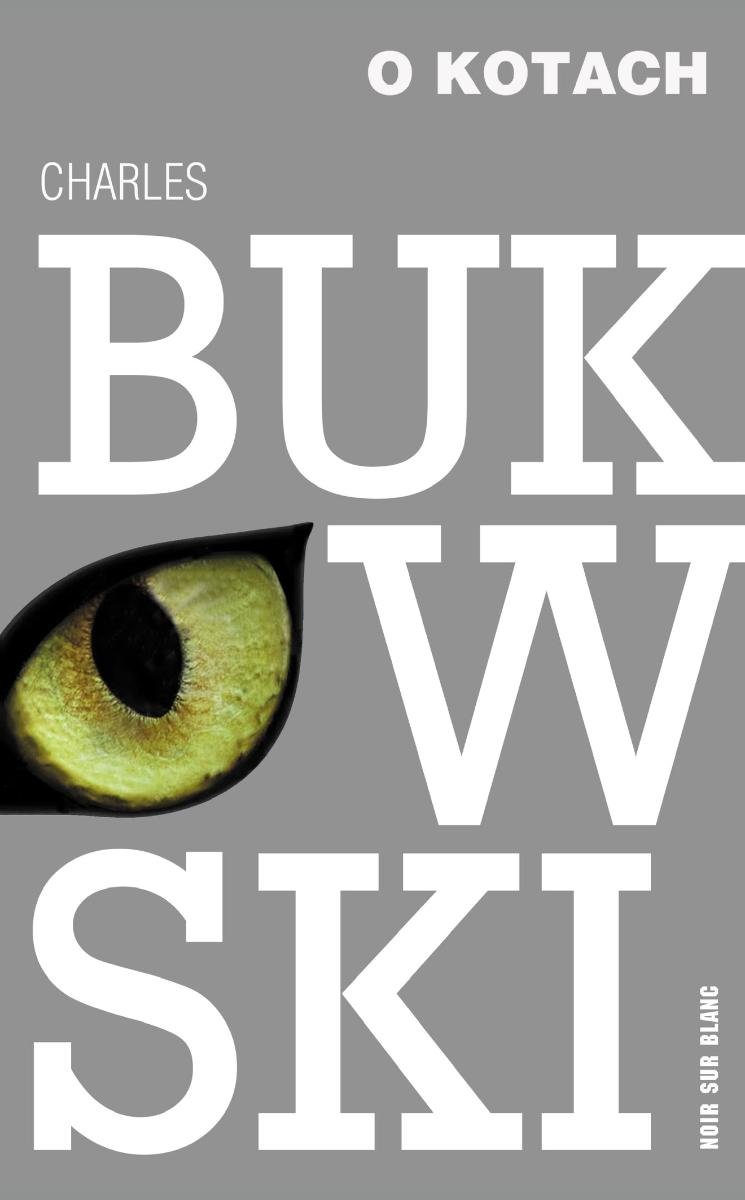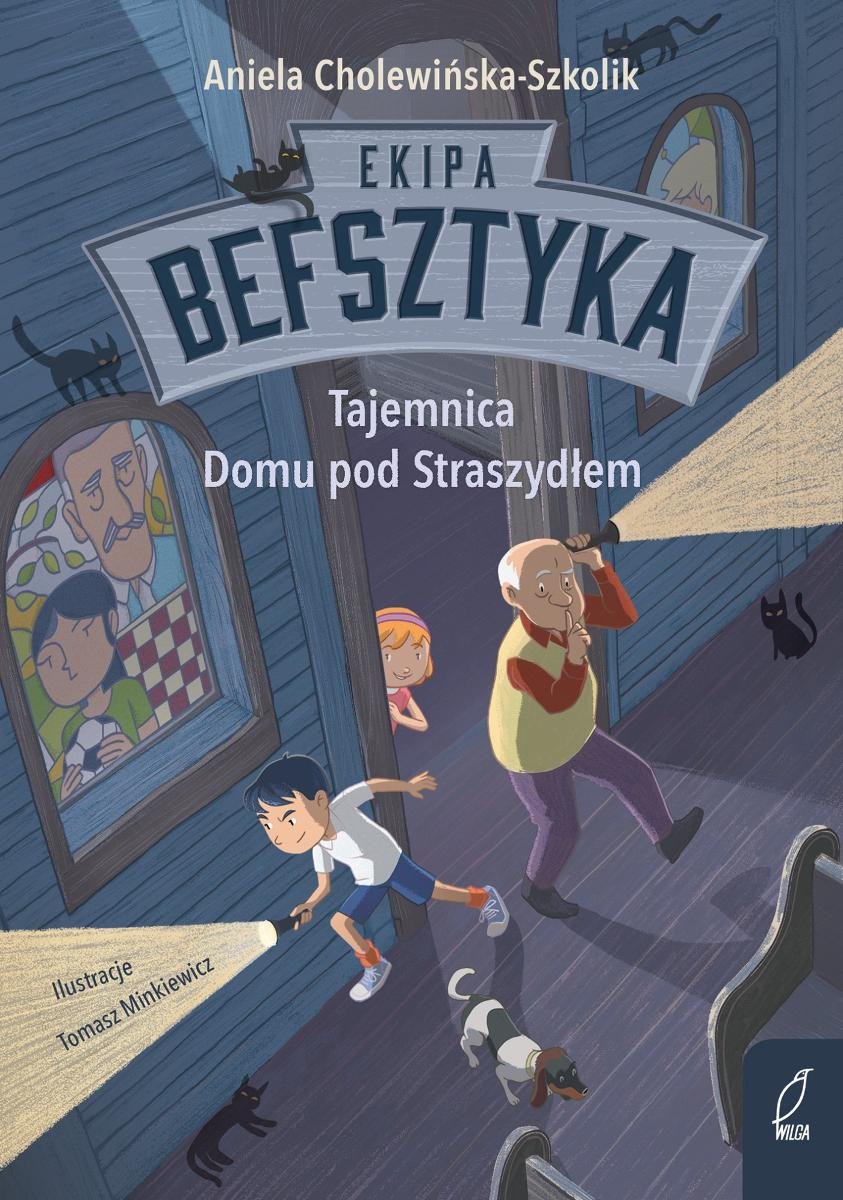13219
| Szczegóły | |
|---|---|
| Tytuł | 13219 |
| Rozszerzenie: | |
Jesteś autorem/wydawcą tego dokumentu/książki i zauważyłeś że ktoś wgrał ją bez Twojej zgody? Nie życzysz sobie, aby pdf był dostępny w naszym serwisie? Napisz na adres [email protected] a my odpowiemy na skargę i usuniemy zabroniony dokument w ciągu 24 godzin.

13219 PDF Ebook podgląd online:
Pobierz PDF
Zobacz podgląd 13219 pdf poniżej lub pobierz na swoje urządzenie za darmo bez rejestracji. 13219 Ebook podgląd za darmo w formacie PDF tylko na PDF-X.PL. Niektóre ebooki są ściśle chronione prawem autorskim i rozpowszechnianie ich jest zabronione, więc w takich wypadkach zamiast podglądu możesz jedynie przeczytać informacje, detale, opinie oraz sprawdzić okładkę.
13219 Ebook transkrypt - 20 pierwszych stron:
KURT _ VONNEGUT
HOCUS POCUS
KURT _ VONNEGUT
EDITOR�S NOTE
The author of this book did not have access to writing paper of uniform size and
quality. He wrote in a
library housing some eight hundred thousand volumes of interest to no one else.
Most had never been
read and probably never would be read, so there was nothing to stop him from
tearing out their blank
endpapers for stationery. This he did not do. Why he did not do this is not
known. Whatever the reason,
he wrote this book in pencil on everything from brown wrapping paper to the
backs of business cards. The
unconventional lines separating passages within chapters indicate where one
scrap ended and the next
began. The shorter the passage, the smaller the scrap.
One can speculate that the author, fishing through trash for anything to write
on, may have hoped to
establish a reputation for humility or insanity, since he was facing trial. It
is equally likely, though, that he
began this book impulsively, having no idea it would become a book, scribbling
words on a scrap which
happened to be right at hand. It could be that he found it congenial, then, to
continue on from scrap to
scrap, as though each were a bottle for him to fill. When he filled one up,
possibly, no matter what its
size, he could satisfy himself that he had written everything there was to write
about this or that.
He numbered all the pages so there could be no doubt
about their being sequential, nor about his hope that someone, undaunted by
their disreputable
appearance, would read them as a book. He in fact says here and there, with
increasing confidence as he
nears the end, that what he is doing is writing a book.
There are several drawings of a tombstone. The author made only one such
drawing. The others are
tracings of the original, probably made by superimposing translucent pieces of
paper and pressing them
against a sunlit library windowpane. He wrote words on the face of each burial
marker, and in one case
simply a question mark. These did not reproduce well on a printed page. So they
have been set in type
instead.
The author himself is responsible for the capitalization of certain words whose
initial letters a
meticulous editor might prefer to see in lowercase. So, too, did Eugene Debs
Hartke choose for reasons
unexplained to let numbers stand for themselves, except at the heads of
sentences, rather than put them
into words: for example, �2� instead of �two.� He may have felt that numbers
lost much of their potency
when diluted by an alphabet.
To virtually all of his idiosyncrasies I, after much thought, have applied what
another author once told
me was the most sacred word in a great editor�s vocabulary. That word is �stet.�
K.V.
This work of pure fiction is dedicated to the
memory of
EUGENE VICToR Dens
1855�1926
�While there is a lower class I am in it. While there is a criminal element I am
of it. While there is a soul in prison I
am not free.�
1
M
y name is Eugene Debs Hartke, and I was born in 1940. I was named at the behest
of my maternal
grandfather, Benjamin Wills, who was a Socialist and an Atheist, and nothing but
a groundskeeper at
Butler University, in Indianapolis, Indiana, in honor of Eugene Debs of Terre
Haute, Indiana. Debs was
a Socialist and a Pacifist and a Labor Organizer who ran several times for the
Presidency of the United
States of America, and got more votes than has any other candidate nominated by
a third party in the
history of this counDebs died in 1926, when I was a negative 14 years of
age.
The year is 2001 now.
If all had gone the way a lot of people thought it would, Jesus Christ would
have been among us again,
and the American flag would have been planted on Venus and Mars.
No such luck!
At least the World will end, an event anticipated with great joy by many. It
will end very soon, but not
in the year 2000, which has come and gone. From that I conclude that God
Almighty is not heavily into
Numerology.
Grandfather Benjamin Wills died in 1948, when I was
a pIus 8 years of age, but not before he made sure that
I knew by heart the most famous words uttered by
Debs, which are:
�While there is a lower class I am in it. While there is a criminal element I am
of it. While there is a
soul in prison I am not free.�
I, Debs� namesake, however, became anything but a bleeding heart. From the time
I was 21 until I was
35 1 was a professional soldier, a Commissioned Officer in the United States
Army. During those 14
years I would have killed Jesus Christ Himself or Herself or Itself or Whatever,
if ordered to do so by a
superior officer. At the abrupt and humiliating and dishonorable end of the
Vietnam War, I was a
Lieutenant Colonel, with I ,000s and 1 ,000s of my own inferiors.
During that war, which was about nothing but the ammunition business, there was
a microscopic
possibility, I suppose, that I called in a white-phosphorus barrage or a napalm
air strike on a returning
Jesus Christ.
I never wanted to be a professional soldier, although I turned out to be a good
one, if there can be such
a thing. The idea that I should go to West Point came up as unexpectedly as the
finale of the Vietnam
War, near the end of my senior year in high school. I was all set to
go to the University of Michigan, and take courses in English and History and
Political Science, and work
on the student daily paper there in preparation for a career as a journalist.
But all of a sudden my father, who was a chemical engineer involved in making
plastics with a half-life
of 50,000 years, and as full of excrement as a Christmas turkey, said I should
go to West Point instead.
He had never been in the military himself. During World War II, he was too
valuable as a civilian deep-
thinker about chemicals to be put in a soldier suit and turned into a suicidal,
homicidal imbecile in 13
weeks.
I had already been accepted by the University of Michigan, when this offer to me
of an appointment to
the United States Military Academy came out of the blue. The offer arrived at a
low point in my father�s
life, when he needed something to boast about which would impress our simple-
minded neighbors. They
would think an appointment to West Point was a great prize, like being picked
for a professional baseball
team.
So he said to me, as I used to say to infantry replacements fresh off the boat
or plane in Vietnam, �This
is a great opportunity.�
What I would really like to have been, given a perfect world, is a jazz pianist.
I mean jazz. I don�t mean
rock and roll. I mean the never-the-same-way-twice music the American black
people gave the world. I
played piano in my own all-white band in my all-white high school in Midland
City, Ohio. We called
ourselves �The Soul Merchants.�
How good were we? We had to play white people�s popular music, or nobody would
have hired us. But
every so often we would cut loose with jazz anyway.
Nobody else seemed to notice the difference, but we sure did. We fell in love
with ourselves. We were in
ecstasy.
Father should never have made me go to West Point. Never mind what he did to the
environment with
his nonbiodegradable plastics. Look what he did to me! What a boob he was! And
my mother agreed with
every decision he ever made, which makes her another blithering nincompoop.
They were both killed 20 years ago in a freak accident in a gift shop on the
Canadian side of Niagara
Falls, which the Indians in this valley used to call �Thunder Beaver,� when the
roof fell in.
There are no dirty words in this book, except for �hell� and �God,� in case
someone is fearing that an
innocent child might see 1. The expression I will use here and there for the end
of the Vietnam War, for
example, will be: �when the excrement hit the air-conditioning.�
Perhaps the only precept taught me by Grandfather Wills that I have honored all
my adult life is that
profanity and obscenity entitle people who don�t want unpleasant information to
close their ears and eyes
to you.
The more alert soldiers who served under me in Vietnam would comment in some
amazement that I
never used profanity, which made me unlike anybody else they had ever met in the
Army. They might ask
if this was because 1 was religious.
I would reply that religion had nothing to do with it. I am in fact pretty much
an Atheist like my
mother�s father, although I kept that to myself. Why argue some-
body else out of the expectation of some sort of an Afterlife?
�I don�t use profanity,� I would say, �because your life and the lives of those
around you may depend
on your understanding what I tell you. OK? OK?�
I resigned my commission in 1975, after the excrement hit the air-conditioning,
not failing, however, to
father a son on my way home, unknowingly, during a brief stopover in the
Philippines. I thought surely
that the subsequent mother, a young female war correspondent for The Des Moines
Register, was using
foolproof birth control.
Wrong again!
Booby traps everywhere.
The biggest booby trap Fate set for me, though, was a pretty and personable
young woman named
Margaret Patton, who allowed me to woo and marry her soon after my graduation
from West Point, and
then had 2 children by me without telling me that there was a powerful strain of
insanity on her
mother�s side of her famSo then her mother, who was living with us, went
insane, and then she herself went insane. Our children, moreover, had every
reason to suspect that they,
too, might go crazy in middle age.
Our children, full-grown now, can never forgive us for reproducing. What a mess.
I realize that my speaking of my first and only wife as something as inhuman as
a booby trap risks my
seeming to be yet another infernal device. But many other women have had no
trouble relating to me as a
person,
and ardently, too, and my interest in them has gone well beyond the merely
mechanical. Almost
invariably, I have been as enchanted by their souls, their intellects, and the
stories of their lives as by their
amorous propensities.
But after I came home from the Vietnam War, and before either Margaret or her
mother had shown me
and the children and the neighbors great big symptoms of their inherited
craziness, that mother-daughter
team treated me like some sort of boring but necessary electrical appliance like
a vacuum cleaner.
Good things have also happened unexpectedly, �manna from Heaven� you might want
to call them, but
not in such quantities as to make life a bowl of cherries or anything
approaching that. Right after my war,
when I had no idea what to do with the rest of my life, 1 ran into a former
commanding officer of mine
who had become President of Tarkington College, in Scipio, New York. I was then
only 35, and my wife
was still sane, and my mother-in-law was only slightly crazy. He offered me a
teaching job, which I
accepted.
I could accept that job with a clear conscience, despite my lack of academic
credentials beyond a mere
BS Degree from West Point, since all the students at larkington were learning-
disabled in some way, or
plain stupid or comatose or whatever. No matter what the subject, my old CO
assured me, I would have
little trouble keeping ahead of them.
The particular subject he wanted me to teach, what�s more, was 1 in which I had
excelled at the
Academy, which was Physics.
The greatest stroke of luck for me, the biggest chunk of manna from Heaven, was
that Tarkington had
need of somebody to play the Lutz Carillon, the great family of bells at the top
of the tower of the college
library, where I am writing now.
I asked my old CO if the bells were swung by ropes. He said they used to be, but
that they had been
electrified and were played by means of a keyboard now.
�What does the keyboard look like?� I said.
�Like a piano,� he said.
I had never played bells. Very few people have that clanging opportunity. But I
could play a piano. So I said,
�Shake hands with your new carillonneur.�
The happiest moments in my life, without question, were when I played the Lutz
Carillon at the start and
end of every day.
I went to work at Tarkington 25 years ago, and have lived in this beautiful
valley ever since. This is home.
I have been a teacher here. I was a Warden for a little while, after Tarkington
College officially became Tark-
ington State Reformatory in June of 1999, 20 months ago.
Now I myself am a prisoner here, but with pretty much the run of the place. I
haven�t been convicted of
anything yet. I am awaiting trial, which I guess will take place in Rochester,
for supposedly having master-
minded the mass prison break at the New York State Maximum Security Adult
Correctional Institution at
Athena, across the lake from here.
It turns out that I also have tuberculosis, and my poor, addled wife Margaret
and her mother have been put
by court order into a lunatic asylum in Batavia,
New York, something I had never had the guts to do. I am so powerless and
despised now that the man I
am named after, Eugene Debs, if he were still alive, might at last be somewhat
fond of me.
2
more optimistic times, when it was not widely understood that human beings were
killing the planet
with the by-products of their own ingenuity and that a new Ice Age had begun in
any case, the generic
name for the sort of horse-drawn covered wagon that carried freight and settlers
across the prairies of
what was to become the United States of America, and eventually across the Rocky
Mountains to the
Pacific Ocean, was �Conestoga��since the first of these were built in the
Conestoga Valley of
Pennsylvania.
They kept the pioneers supplied with cigars, among other things, so that cigars
nowadays, in the year 2001,
are still called �stogies� sometimes, which is short for �Conestoga.�
By 1830, the sturdiest and most popular of these wagons were in fact made by the
Mohiga Wagon Company
right here in Scipio, New York, at the pinched waist of Lake Mohiga, the deepest
and coldest and
westernmost of the long and narrow Finger Lakes. So sophisticated cigar-smokers
might want to stop calling
their stinkbombs �stogies� and call them �mogies� or �higgies� instead.
The founder of the Mohiga Wagon Company was Aaron Tarkington, a brilliant
inventor and manufac-
turer who nevertheless could not read or write. He now would be identified as a
blameless inheritor of the
genetic defect known as dyslexia. He said of himself that he was like the
Emperor Charlemagne, �too
busy to learn to read and write.� He was not too busy, however, to have his wife
read to him for 2 hours
every evening. He had an excellent memory, for he delivered weekly lectures to
the workmen at the
factory that were laced with lengthy quotations from Shakespeare and Homer and
the Bible, and on and
on.
He sired 4 children, a son and 3 daughters, all of whom could read and write.
But they still carried the
gene of dyslexia, which would disqualify several of their own descendants from
getting very far in
conventional schemes of education. Two of Aaron Tarkington�s children were so
far from being dyslexic, in fact,
as to themselves write books, which I have read only now, and which nobody,
probably, will ever read again.
Aaron�s only son, Elias, wrote a technical account of the construction of the
Onondaga Canal, which con-
nected the northern end of Lake Mohiga to the Erie Canal just south of
Rochester. And the youngest
daughter, Felicia, wrote a novel called Carpathia, about a headstrong, high-born
young woman in the
Mohiga Valley who fell in love with a half-Indian lock-tender on that same
canal.
That canal is all filled in and paved over now, and is Route 53, which forks at
the head of the lake, where
the
locks used to be. One fork leads southwest through farm country to Scipio. The
other leads southeast
through the perpetual gloom of the Iroquois National Forest to the bald hilltop
crowned by the battlements of the
New York State Maximum Security Adult Correctional Institution at Athena, a
hamlet directly across the lake from
Scipio.
Bear with me. This is history. I am trying to explain how this valley, this
verdant cul-de-sac, got to be
what it is today.
All 3 of Aaron Tarkington�s daughters married into prosperous and enterprising
families in Cleveland,
New York, and Wilmington, Delaware�innocently making the threat of dyslexia
pandemic in an emerging ruling
class of bankers and industrialists, largely displaced in my time by Germans,
Koreans, Italians, English,
and, of course, Japanese.
The son of Aaron, Elias, remained in Scipio and took over his father�s
properties, adding to them a brewery
and a steam-driven carpet factory, the first such in the state. There was no
water power in Scipio, whose industrial
prosperity until the introduction of steam was based not on cheap energy and
locally available raw materials but on
inventiveness and high standards of workmanship.
Elias Tarkington never married. He was severely wounded at the age of 54 while a
civilian observer at the
Battle of Gettysburg, top hat and all. He was there to see the debuts of 2 of
his inventions, a mobile field
kitchen and a pneumatic recoil mechanism for heavy artillery. The field kitchen,
incidentally, with slight
modifications, would later be adopted by the Barnum &
Bailey Circus, and then by the German Army during World War I.
Elias Tarkington was a tall and skinny man with chin whiskers and a stovepipe
hat. He was shot through
the right chest at Gettysburg, but not fatally.
The man who shot him was I of the few Confederate soldiers to reach the Union
lines during Pickett�s
Charge. That Johnny Reb died in ecstasy among his enemies, believing that he had
shot Abraham Lincoln. A
crumbling newspaper account I have found here in what used to be the college
library, which is now the
prison library, gives his last words as follows: �Go home, Bluebellies. Old
Satan�s daid.�
During my 3 years in Vietnam, I certainly heard plenty of last words by dying
American footsoldiers.
Not 1 of them, however, had illusions that he had somehow accomplished something
worthwhile in the
process of making the Supreme Sacrifice.
One boy of only 18 said to me while he was dying and I was holding him in my
arms, �Dirty joke, dirty
joke.�
3
E
has Tarkington, the severely wounded Abraham Lincoln look-alike, was brought
home in 1 of his own wagons to
Scipio, to his estate overlooking the town and lake.
He was not well educated, and was more a mechanic than a scientist, and so spent
his last 3 years trying to invent
what anyone familiar with Newton�s Laws would have known was an impossibility, a
perpetual-motion machine.
He had no fewer than 27 contraptions built, which he foolishly expected to go on
running, after he had given them
an initial spin or whack, until Judgment Day.
I found 19 of those stubborn, mocking machines in the attic of what used to be
their inventor�s mansion, which in
my time was the home of the College President, about a year after I came to work
at Tarkington. I brought them
back downstairs and into the 20th Century. Some of my students and I cleaned
them up and restored any parts that
had deteriorated during the intervening 100 years. At the least they were
exquisite
jewelry, with gamets and amethysts for bearings, with arms and legs of exotic
woods, with tumbling balls of ivory,
with chutes and counterweights of silver. It was as though dying Elias hoped to
overwhelm science with the magic
of precious materials.
The longest my students and I could get the best of them to run was 51 seconds.
Some eternity!
To me, and I passed this on to my students, the restored devices demonstrated
not only how quickly anything on
Earth runs down without steady infusions of energy. They reminded us, too, of
the craftsmanship no longer
practiced in the town below. Nobody down there in our time could make things
that cunning and beautiful.
Yes, and we took the 10 machines we agreed were the most beguiling, and we put
them on permanent
exhibit in the foyer of this library underneath a sign whose words can surely be
applied to this whole ruined planet
nowadays:
THE COMPLICATED FUTILITY OF IGNORANCE
I have discovered from reading old newspapers and letters and diaries from back
then that the men who built
the machines for Elias Tarkington knew from the first that they would never
work, whatever the reason. Yet what
love they lavished on the materials that comprised them! How is this for a
definition of high art:
�Making the most of the raw materials of futility�?
Still another perpetual-motion machine envisioned by Elias Tarkington was what
his Last Will and Testament
called �The Mohiga Valley Free Institute.� Upon
his death, this n~w school would take possession of his 3,000-hectare estate
above Scipio, plus half the shares in
the wagon company, the carpet company, and the brewery. The other half was
already owned by his sisters far away.
On his deathbed he predicted that Scipio would I day be a great metropolis and
that its wealth would transform his
little college into a university to rival Harvard and Oxford and Heidelberg.
It was to offer a free college education to persons of either sex, and of any
age or race or religion, living within 40
miles of Scipio. Those from farther away would pay a modest fee. In the
beginning, it would have only 1 full-time
employee, the President. The teachers would be recruited right here in Scipio.
They would take a few hours off
from work each week, to teach what they knew. The chief engineer at the wagon
company, for example, whose
name was Andr� Lutz, was a native of Liege, Belgium, and had served as an
apprentice to a bell founder there. He
would teach Chemistry. His French wife would teach French and Watercolor
Painting. The brewmaster at the
brewery, Hermann Shultz, a native of Leipzig, would teach Botany and German and
the flute. The Episcopalian
priest, Dr. Alan Clewes, a graduate of Harvard, would teach Latin, Greek,
Hebrew, and the Bible. The dying man�s
physician, Dalton Polk, would teach Biology and Shakespeare, and so on.
And it came to pass.
In 1869 the new college enrolled its first class, 9 students in all, and all
from right here in Scipio. Four were of
ordinary college age. One was a Union veteran who had lost his legs at Shiloh.
One was a former black slave 40
years old. One was a spinster 82 years old.
The first President was only 26 years old, a schoolteacher from Athena, 2
kilometers by water from Scipio. There
was no prison over there back then, but only a slate quarry and a sawmill and a
few subsistence farms. His name was
John Peck. He was a cousin of the Tarkingtons�. His branch of the family,
however, was and remains unhampered
by dyslexia. He has numerous descendants in the present day, 1 of whom, in fact,
is a speech writer for the Vice-
President of the United States.
Young John Peck and his wife and 2 children and his mother-in-law arrived at
Scipio by rowboat, with Peck and
his wife at the oars, their children seated in the stern, and their luggage and
the mother-in-law in another boat they
towed behind.
They took up residence on the third floor of what had been Elias Tarkington�s
mansion. The rooms on the first 2
floors would be classrooms, a library, which was already a library with 280
volumes collected by the Tarkingtons,
study halls, and a dining room. Many treasures from the past were taken up to
the attic to make room for the new
activities. Among these were the failed perpetual-motion machines. They would
gather dust and cobwebs until 1978,
when I found them up there, and realized what they were, and brought them down
the stairs again.
One week before the first class was held, which was in Latin, taught by the
Episcopalian priest Alan Clewes,
Andr� Lutz the Belgian arrived at the mansion with 3 wagons carrying a very
heavy cargo, a carillon consisting of
32 bells. He had cast them on his own time and at his own expense in the wagon
factory�s foundry. They were made
from mingled Union and Confederate rifle
barrels and cannonballs and bayonets gathered up after the Battle of Gettysburg.
They were the first bells and
surely the last bells ever to be cast in Scipio.
Nothing, in my opinion, will ever again be cast in Scipio. No industrial arts of
any sort will ever again be
practiced here.
Andr� Lutz gave the new college all those bells, even though there was no place
to hang them. He said he did it
because he was so sure that it would 1 day be a great university with a bell
tower and everything. He was dying of
emphysema as a result of the fumes from molten metals that he had been breathing
since he was 10 years old. He
had no time to wait for a place to hang the most wonderful consequence of his
having been alive for a little while,
which was all those bells, bells, bells.
They were no surprise. They had been 18 months in the making. The founders whose
work he supervised had
shared his dreams of immortality as they made things as impractical and
beautiful as bells, bells, bells.
So all the bells but I from a middle octave were slathered with grease to
prevent their rusting and stored in 4
ranks in the estate�s great barn, 200 meters from the mansion. The I bell that
was going to get to sing at once was
installed in the cupola of the mansion, with its rope running all the way down
to the first floor. It would call people
to classes and, if need be, also serve as a fire alarm.
The rest of the bells, it turned out, would slumber in the loft for 30 years,
until 1899, when they were hanged as a
family, the 1 from the cupola included, on axles in the belfry of the tower of a
splendid library given to the school
by the Moellenkamp family of Cleveland.
The Moellenkamps were also Tarkingtons, since the
founder of their fortune had married a daughter of the illiterate Aaron
Tarkington. Eleven of them so far
had been dyslexic, and they had all gone to college in Scipio, since no other
institution of higher learning would
take them in.
The first Moellenkamp to graduate from here was Henry, who enrolled in 1875,
when he was 19, and when
the school was only 6 years old. It was at that time that its name was changed
to Tarkington College. I have
found the crumbling minutes of the Board of Trustees meeting at which that name
change was made. Three of
the 6 trustees were men who had married daughters of Aaron Tarkington, 1 of them
the grandfather of Henry
Moellenkamp. The other 3 trustees were the Mayor of Scipio, and a lawyer who
looked after the Tarkington
daughters� interests in the valley, and the area Congressman, who was surely the
sisters� faithful servant, too, since
they were partners with the college in his district�s most important industries.
And according to the minutes, which fell apart in my hands as I read them, it
was the grandfather of young
Henry Moellenkamp who proposed the name change, saying that �The Mohiga Valley
Free Institute� sounded too
much like a poorhouse or a hospital. It is my guess that he would not have
minded having the place sound like a
catchment for the poor, if only he had not suffered the misfortune of having his
own grandson go there.
It was in that same year, 1875, that work began across the lake from Scipio, on
a hilltop above Athena, on a
prison camp for young criminals from big-city slums. It was believed that fresh
air and the wonders of
Nature would improve their souls and bodies to the point that they would find it
natural to be good citizens.
When I came to work at Tarkington, there were only 300 students, a number that
hadn�t changed for 50
years. But the rustic work-camp across the lake had become a brutal fortress of
iron and masonry on a
naked hilltop, the New York State Maximum Security Adult Correctional
Institution at Athena, keeping
5,000 of the state�s worst criminals under lock and key.
Two years ago, Tarkington still had only 300 students, but the population of the
prison, under hideously
overcrowded conditions, had grown to 10,000. And then, 1 cold winter�s night, it
became the scene of the biggest
prison break in American history. Until then, nobody had ever escaped from
Athena.
Suddenly, everybody was free to leave, and to take a weapon from the prison
armory, too, if he had use for
1. The lake between the prison and the little college was frozen solid, as
easily traversed as the parking lot
of a great shopping mall.
What next?
Yes, and by the time Andr� Lutz�s bells were at last made to sing as a carillon,
Tarkington College had not only a
new library but luxurious dormitories, a science building, an art building, a
chapel, a theater, a dining hall, an
administration building, 2 new buildings of classrooms, and athletic facilities
that were the envy of the institutions
with which it had begun to compete in track and fencing and swimming and
baseball, which were Hobart, the
University of Rochester, Cornell, Union, Amherst, and Bucknell.
These structures bore the names of wealthy families
as grateful as the Moelhenkamps for all the college had managed to do for
offspring of theirs whom conven-
tional colleges had deemed ineducable. Most were unrelated to the Moehlenkamps
or to anyone who
carried the Tarkington gene of dyslexia. Nor were the young they sent to
Tarkington necessarily troubled by
dyslexia. All sorts of different things were wrong with them, including an
inability to write legibly with pen
and ink, although what they tried to write down made perfect sense, and
stammering so severe as to prevent their
saying a word in class, and petit mal, which caused their minds to go perfectly
blank for seconds or minutes
anywhere, anytime, and so on.
It was simply the Moellenkamps who first challenged the new little college to do
what it could for a seemingly
hopeless case of plutocratic juvenile incapacity, namely Henry. Not only would
Henry graduate with honors from
Tarkinglon. He would go on to Oxford, taking with him a male companion who read
aloud to him and wrote down
thoughts Henry could only express orally. Henry would become 1 of the most
brilliant speakers in a golden age of
American purple, bow-wow oratory, and serve as a Congressman and then a United
States Senator from Ohio for 36
years.
That same Henry Moellenkamp was author of the lyrics to one of the most popular
turn-of-the-century ballads,
�Mary, Mary, Where Have You Gone?�
The melody of that ballad was composed by Henry�s friend Paul Dresser, brother
of the novelist Theodore
Dreiser. This was 1 of the rare instances in which Dresser set another man�s
words to music instead of his own. And
then Henry appropriated that tune and
wrote, or rather dictated, new words which sentimentalized student life in this
valley.
Thus was �Mary, Mary, Where Have You Gone?� transmogrifled into the alma mater
of this campus
until it became a penitentiary 2 years ago.
History.
Accident after accident has made Tarkington what it is today. Who would dare to
predict what it will be in 2021,
only 20 years from now? The 2 prime movers in the Universe are Time and Luck.
As the tag line of my favorite dirty joke would have it: �Keep your hat on. We
could wind up miles from here.�
If Henry Moellenkamp had not come out of his mother�s womb dyslexic, Tarkington
College wouldn�t even
have been called Tarkington College. It would have gone on being The Mohiga
Valley Free Institute, which
would have died right along with the wagon factory and the carpet factory and
the brewery when the
railroads and highways connecting the East and West were built far to the north
and south of Scipio�so
as not to bridge the lake, so as not to have to penetrate the deep and dark
virgin hardwood forest, now the Iroquois
National Forest, to the east and south of here.
If Henry Moellenkamp hadn�t come out of his mother�s womb dyslexic, and if that
mother hadn�t been a
Tarkington and so known about the little college on Lake Mohiga, this library
would never have been built and
ifiled with 800,000 bound volumes. When I was a professor here, that was 70,000
more bound volumes than
Swarthmore College had! Among small colleges,
this library used to be second only to the I at Oberlin, which had 1,000,000
bound volumes.
So what is this structure in which I sit now, thanks to Time and Luck? It is
nothing less, friends and neighbors,
than the greatest prison library in the history of crime and punishment!
It is very lonely in here. Hello? Hello?
I might have said the same sort of thing back when this was an 800,000-bound-
volume college library: �It is very
lonely in here. Hello? Hello?�
I have just looked up Harvard University. It has 13,000,000 bound volumes now.
What a read!
And almost every book written for or about the ruling class.
If Henry Moellenkamp hadn�t come out of his mother�s womb dyslexic, there would
never have been a tower in
which to hang the Lutz Carillon.
Those bells might never have gotten to reverberate in the valley or anywhere.
They probably would have been
melted up and made back into weapons during World War I.
If Henry Moellenkamp had not come out of his mother�s womb dyslexic, these
heights above Scipio might have
been all darkness on the cold winter night 2 years ago, with Lake Mohiga frozen
hard as a parking lot, when 10,000
prisoners at Athena were suddenly set free.
Instead, there was a little galaxy of beckoning lights up here.
4
R
egardless of whether Henry Moellenkamp came out of his mother�s womb dyslexic or
not, I was
born in Wilmington, Delaware, 18 months before this country joined the fighting
in World War II. I have not seen
Wilmington since. That is where they keep my birth certificate. I was the only
child of a housewife and, as I�ve said,
a chemical engineer. My father was then employed by E. I. Du Pont de Nemours &
Company, a manufacturer of
high explosives, among other things.
When I was 2 years old, we moved to Midland City, Ohio, where a washing-machine
company named Robo-
Magic Corporation was beginning to make bomb-release mechanisms and swivel
mounts for machine guns on B-I 7
bombers. The plastics industry was then in its infancy, and Father was sent to
Robo-Magic to determine what
synthetic materials from Du Pont could be used in the weapons systems in place
of metal, in order to make them
lighter.
By the time the war was over, the company had gotten out of the washing-machine
business entirely, had
changed its name to Barrytron, Limited, and was making weapon, airplane, and
motor vehicle parts
composed of plastics it had developed on its own. My father had become the
company�s Vice-President in Charge of
Research and Development.
When I was about 17, Du Pont bought Barrytron in order to capture several of its
patents. One of the plastics
Father had helped to develop, I remember, had the ability to scatter radar
signals, so that an airplane clad in it would
look like a flock of geese to our enemies.
This material, which has since been used to make virtually indestructible
skateboards and crash helmets and skis
and motorcycle fenders and so on, was an excuse, when I was a boy, for
increasing security precautions at
Barrytron. To keep Communists from finding out how it was made, a single fence
topped with barbed wire was no
longer adequate. A second fence was put outside that one, and the space between
them was patrolled around the
clock by humorless, jack-booted armed guards with lean and hungry Dobermans.
When Du Pont took over Barrytron, the double fence, the Dobennans, my father and
all, I was a high school
senior, all set to go to the University of Michigan to learn how to be a
journalist, to serve John Q. Public�s right to
know. Two members of my 6-piece band, The Soul Merchants, the clarinet and the
string bass, were also going to
Michigan.
We were going to stick together and go on making music at Ann Arbor. Who knows?
We might have become so
popular that we went on world tours and
made great fortunes, and been superstars at peace rallies and love-ins when the
Vietnam War came
along.
Cadets at West Point did not make music. The musicians in the dance band and the
marching band were Regular
Army enlisted men, members of the servant class.
They were under orders to play music as written, note for note, and never mind
how they felt about the music or
about anything.
For that matter, there wasn�t any student publication at West Point. So never
mind how the cadets felt about
anything. Not interesting.
I was fine, but all kinds of things were going wrong with my father�s life. Du
Pont was looking him over, as they
were looking over everybody at Barrytron, deciding whether to keep him on or
not. He was also having a love affair
with a married woman whose husband caught him in the act and beat him up.
This was a sensitive subject with my parents, naturally, so I never discussed it
with them. But the story was all
over town, and Father had a black eye. He didn�t play any sports, so he had to
make up a story about falling down
the basement stairs. Mother weighed about 90 kilograms by then, and berated him
all the time about his having sold
all his Barrytron stock 2 years too soon. If he had hung on to it until the Du
Pont takeover, he would have had
$1,000,000, back when it meant something to be a millionaire. If I had been
learning-disabled, he could easily have
afforded to send me to Tarkington.
Unlike me, he was the sort of man who had to be in
extremis in order to commit adultery. According to a story I heard from enemies
at high school,
Father had done the jumping-out-the-window thing, hippity-hopping like Peter
Cottontail across backyards with his
pants around his ankles, and getting bitten by a dog, and getting tangled up in
a clothesline, and all the rest of it.
That could have been an exaggeration. I never asked.
I myself was deeply troubled by our little family�s image problem, which was
complicated when Mother broke
her nose 2 days after Father got the black eye. To the outside world it looked
as though she had said something to
Father about the reason he had a black eye, and his reply had been to slug her.
I didn�t think he would ever slug her,
no matter what.
There is a not quite remote possibility that he really did slug her, of course.
Lesser men would have slugged her
under similar circumstances. The real truth of the matter became unavailable to
historians forever when the falling
ceiling of a gift shop on the Canadian side of Niagara Falls killed both
participants, as I�ve said, some 20 years ago.
They were said to have died instantly. They never knew what hit them, which is
the best way to go.
There was no argument about that in Vietnam or, I suppose, on any battlefield.
One kid I remember stepped on an
antipersonnel mine. The mine could have been one of our own. His best friend
from Basic Training asked him what
he could do for him, and the kid replied: �Turn me off like a light bulb, Sam.�
The dying kid was white. The kid who wanted to help him was black, or a light
tan, actually. His features were
practically white, you would have to say.
A woman I was making love to a few years ago asked me if my parents were still
alive. She wanted to know more
about me, now that we had our clothes off.
I told her that they had suffered violent deaths in a foreign country, which was
true. Canada is a foreign country.
But then I heard myself spinning this fantastic tale of their being on a safari
in Tanganyika, a place about which I
know almost nothing. I told that woman, and she believed me, that my parents and
their guide were shot by poachers
who were killing elephants for their ivory and mistook them for game wardens. I
said that the poachers put their
bodies on top of anthills, so that their skeletons were soon picked clean. They
could be positively identified only by
their dental work.
I used to find it easy and even exhilarating to lie that elaborately. I don�t
anymore. And I wonder now if I didn�t
develop that unwholesome habit very young, and because my parents were such an
embarrassment, and especially
my mother, who was fat enough to be a circus freak. I described much more
attractive parents than I really had, in
order to make people who knew nothing about them think well of me.
And during my final year in Vietnam, when I was in Public Information, I found
it as natural as breathing to tell
the press and replacements fresh off the boats or planes that we were clearly
winning, and that the folks back home
should be proud and happy about all the good things we were doing there.
I learned to lie like that in high school.
Another thing I learned in high school that was helpful in Vietnam: Alcohol and
marijuana, if used in modera
tion, plus loud, usually low-class music, make stress and boredom infinitely
more bearable. It was
manna from Heaven that I came into this world with a gift for moderation in my
intake of mood-modifying
substances. During my last 2 years in high school, I don�t think my parents even
suspected that I was half in the bag
a lot of the time. All they ever complained about was the music, when I played
the radio or the phonograph or when
The Soul Merchants rehearsed in our basement, which Mom and Dad said was jungle
music, and much too loud.
In Vietnam, the music was always much too loud. Practically everybody was half
in the bag, including Chaplains.
Several of the most gruesome accidents I had to explain to the press during my
last year over there were caused by
people who had rendered themselves imbecilic or maniacal by ingesting too much
of what, if taken in moderation,
could be a helpful chemical. I ascribed all such accidents, of course, to human
error. The press understood. Who on
this Earth hasn�t made a mistake or 2?
The assassination of an Austrian archduke led to World War I, and probably to
World War II as well. Just as
surely, my father�s black eye brought me to the sorry state in which I find
myself today. He was looking for some
way, almost any way, to recapture the respect of the community, and to attract
favorable attention from Barrytron�s
new owner, Du Pont. Du Pont, of course, has now been taken over by I. G. Farben
of Germany, the same company
that manufactured and packaged and labeled and addressed the cyanide gas used to
kill civilians of all ages,
including babes in arms, during the Holocaust.
What a planet.
So Father, his injured eye looking like a slit in a purple and yellow omelet,
asked me if I was likely to receive any
sort of honors at high school graduation. He didn�t say so, but he was frantic
for something to brag about at work.
He was so desperate that he was trying to get blood out of the turnip of my
nonparticipation in high school sports,
student government, or school-sponsored extracurricular activities. My grade
average was high enough to get me
into the University of Michigan, and on the honor roll now and then, but not
into the National Honor Society.
It was so pitiful! It made me mad, too, because he was trying to make me partly
responsible for the family�s
image problem, which was all his fault. �I was always sorry you didn�t go out
for football,� he said, as though a
touchdown would have made everything all right again.
�Too late now,� I said.
�You let those 4 years slip by without doing anything but making jungle music,�
he said.
It occurs to me now, a mere 43 years later, that I might have said to him that
at least I managed my sex life better
than he had managed his. I was getting laid all the time, thanks to jungle
music, and so were the other Soul
Merchants. Certain sorts of not just girls but full-grown women, too, found us
glamorous free spirits up on the
bandstand, imitating black people and smoking marijuana, and loving ourselves
when we made music, and laughing
about God knows what just about anytime.
I guess my love life is over now. Even if I could get out of prison, I wouldn�t
want to give some trusting
woman tuberculosis. She would be scared to death of getting AIDS, and I would
give her TB
instead. Wouldn�t that be nice?
So now I will have to make do with memories. As a prosthesis for my memory, I
have begun to list all the
women, excluding my wife and prostitutes, with whom I have �gone all the way,�
as we used to say in high school. I
find it impossible to remember any conquest I made as a teenager with clarity,
to separate fact from fantasy. It was
all a dream. So I begin my list with Shirley Kern, to whom I made love when I
was 20. Shirley is my datum.
How many names will there be on the list? Too early to tell, but wouldn�t that
number, whatever it turns out to be,
be as good a thing as any to put on my tombstone as an enigmatic epitaph?
I am certainly sorry if I ruined the lives of any of those women who believed me
when I said I loved them. I can
only hope against hope that Shirley Kern and all the rest of them are still OK.
If it is any consolation to those who may not be OK, my own life was ruined by a
Science Fair.
Father asked me if there wasn�t some school-sponsored extracurricular activity I
could still try out for. This was
only 8 weeks before my graduation! So I said, in a spirit of irony, since he
knew science did not delight me as it
delighted him, that my last opportunity to amount to anything was the County
Science Fair. I got Bs in Physics and
Chemistry, but you could stuff both those subjects up your fundament as far as I
was concerned.
But Father rose from his chair in a state of sick
excitement. �Let�s go down in the basement,� he said. �There�s work to do.�
�What kind of work?� I said. This was about midnight.
And he said, �You are going to enter and win the Science Fair.�
Which I did. Or, rather, Father entered and won the Science Fair, requiring only
that I sign an affidavit swearing
that the exhibit was all my own work, and that I memorize his explanation of
what it proved. It was about crystals
and how they grew and why they grew.
His competition was weak. He was, after all, a 43-year-old chemical engineer
with 20 years in industry, taking on
teenagers in a community where few parents had higher educations. The main
business in the county back then was
still agriculture, corn and pigs and beef cattle. Barrytron was the sole
sophisticated industry, and only a handful of
people such as Father understood its processes and apparatus. Most of the
company�s employees were content to do
what they were told and incurious as to how it was, exactly, that they had
worked the miracles that somehow arrived
all packaged and labeled and addressed on the loading docks.
I am reminded now of dead American soldiers, teenagers mostly, all packaged and
labeled and addressed on
loading docks in Vietnam. How many people knew or cared how these curious
artifacts were actually manufactured?
A few.
Why Father and I were not branded as swindlers, why my exhibit was not thrown
out of the Science Fair, why I
am a prisoner awaiting trial now instead of a star
reporter for the Korean owners of The New York Times has to do with compassion,
I now believe.
The feeling was general in the community, I think, that our little family had
suffered enough. Nobody in the county
gave much of a darn about science anyway.
The other exhibits were so dumb and pitiful, too, that the best of them would
make the county look stupid if it and
its honest creator went on to the statewide competition in Cleveland. Our
exhibit sure looked slick and tidy. Another
big plus from the judges� point of view, maybe, when they thought about what the
county�s best was going to be up
against in Cleveland: our exhibit was extremely hard for an ordinary person to
understand or find at all interesting.
I remained philosophical, thanks to marijuana and alcohol, while the community
decided whether to crucify me as
a fraud or to crown me as a genius. Father may have had a buzz on, too.
Sometimes it�s hard to tell. I served under 2
Generals in Vietnam who drank a quart of whiskey a day, but it was hard to
detect. They always looked serious and
dignified.
So off Father and I went to Cleveland. His spirits were high. I knew we would go
smash up there. I don�t know
why he didn�t know we would go smash up there. The only advice he gave me was to
keep my shoulders back when
I was explaining my exhibit and not to smoke where the judges might see me doing
it. He was talking about
ordinary cigarettes. He didn�t know I smoked the other kind.
I make no apologies for having been zapped during my darkest days in high
school. Winston Churchill was
bombed out of his skull on brandy and Cuban cigars during the darkest days of
World War II.
Hitler, of course, thanks to the advanc











